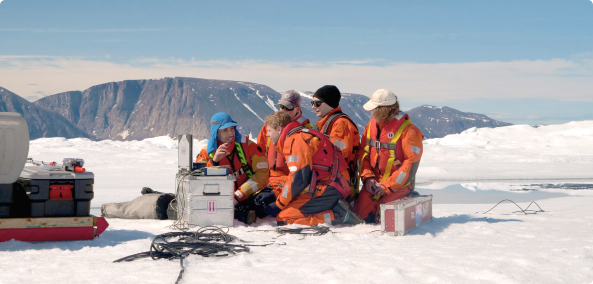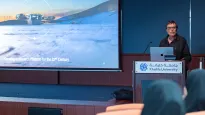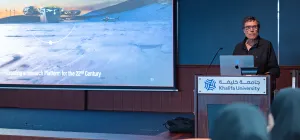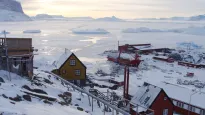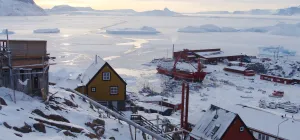Stephen Cox: A Plea for Safeguarding the Antarctic

However much you have travelled the world, nothing can prepare you for the grandeur and spectacle of the Antarctic with its diverse abundant wildlife, the often tragic history of its exploration, the remnants of man’s abuse of the natural environment and something that one takes for granted when looking from afar: the ice. The ice, particularly where it collides with the sea, is simply “awesome”.
Sailing through the ice floes you cannot but be filled with awe and wonder at the sight before you. You see the vast glaciers forming ice cliffs where they meet the sea, you watch huge blocks of ice collapsing into the sea to produce icebergs large and small, and you wonder at the different colours that the combination of light, sea and ice produce: blue, green, grey or, of course, sparkling white.
The whole region of the Southern Ocean, the Antarctic Circle and eventually to the Pole itself represents an enormous challenge for the human race. It is the last genuine wilderness, largely uninhabited but seven nations have laid claim to parts of it. What we do to the planet affects the climate of these precious ecosystems. In the past, the sealers managed to virtually wipe out the fur seal population to satisfy human demand for their fur. Once the seals had been killed, we turned our attention to decimating the whales. The ruins of the whaling station at Grytviken are a fitting reminder that here during the 20th century (according to their impeccable record keeping), many millions of whales were killed and processed.
Nowadays, we are concerned about the reduction of the albatross population as a consequence of the rapid increase of line fishing, some of which is illegal or unregulated. We also keep a watchful eye on the supplies of krill, the staple diet of so many species of marine animals in the region, which are being affected by diminishing sea ice cover and illegal fishing.
However it is not all bad news. There are still vast colonies of eight varieties of penguins. Six species of seals lounge around wherever you look on land, snow or ice floes. And of course, whales play in the vast ocean expanses. The Antarctic Treaty signed by nations with an interest in the Antarctic is holding. It embodies in international law substantial protections for the region, its wildlife and its environment. It also regulates tourism, which has the potential to do serious damage in the future. Moreover, the wildlife is probably more robust than we sometimes give it credit for: we have witnessed the recovery of the fur seal population to levels at least as great as before commercial sealing began.
The message for the human race, however, must be one of eternal vigilance, lest we lose our planet’s last remaining wilderness.
- Stephen Cox
About Stephen Cox
Stephen Cox is currently a Trustee of the UK Branch of IPF. A geographer by background, he was appointed Executive Director of the Royal Society, the UK's national academy, in July 1997. He retired in February 2011 after leading the Royal Society in celebrating its 350th anniversary in 2010.
Mr. Cox now chairs the Council of Royal Holloway University of London and the Board of Atlantic College in South Wales. He is also a Trustee of the Council for Assisting Refugee Academics and is a Fellow of the Royal Geographical Society, and in 1997, he was awarded a CVO in the Queen's Birthday Honours. Mr. Cox holds an Honorary DSc from Lancaster University.
He recently spending nearly a month of the Antarctic summer travelling by ship from Ushuaia to the Antarctic Peninsula.
Download